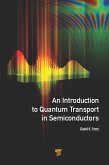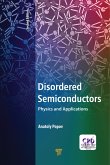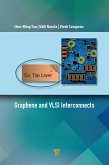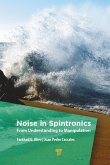Throughout their college career, most engineering students have done problems and studies that are basically situated in the classical world. Some may have taken quantum mechanics as their chosen field of study. This book moves beyond the basics to highlight the full quantum mechanical nature of the transport of carriers through nanoelectronic structures. The book is unique in that addresses quantum transport only in the materials that are of interest to microelectronics-semiconductors, with their variable densities and effective masses.The author develops Green's functions starting from equilibrium Green's functions and going through modern time-dependent approaches to non-equilibrium Green's functions, introduces relativistic bands for graphene and topological insulators and discusses the quantum transport changes that these bands induce, and discusses applications such as weak localization and phase breaking processes, resonant tunneling diodes, single-electron tunneling, and entanglement. Furthermore, he also explains modern ensemble Monte Carlo approaches to simulation of various approaches to quantum transport and the hydrodynamic approaches to quantum transport. All in all, the book describes all approaches to quantum transport in semiconductors, thus becoming an essential textbook for advanced graduate students in electrical engineering or physics.
Dieser Download kann aus rechtlichen Gründen nur mit Rechnungsadresse in A, B, BG, CY, CZ, D, DK, EW, E, FIN, F, GR, HR, H, IRL, I, LT, L, LR, M, NL, PL, P, R, S, SLO, SK ausgeliefert werden.









